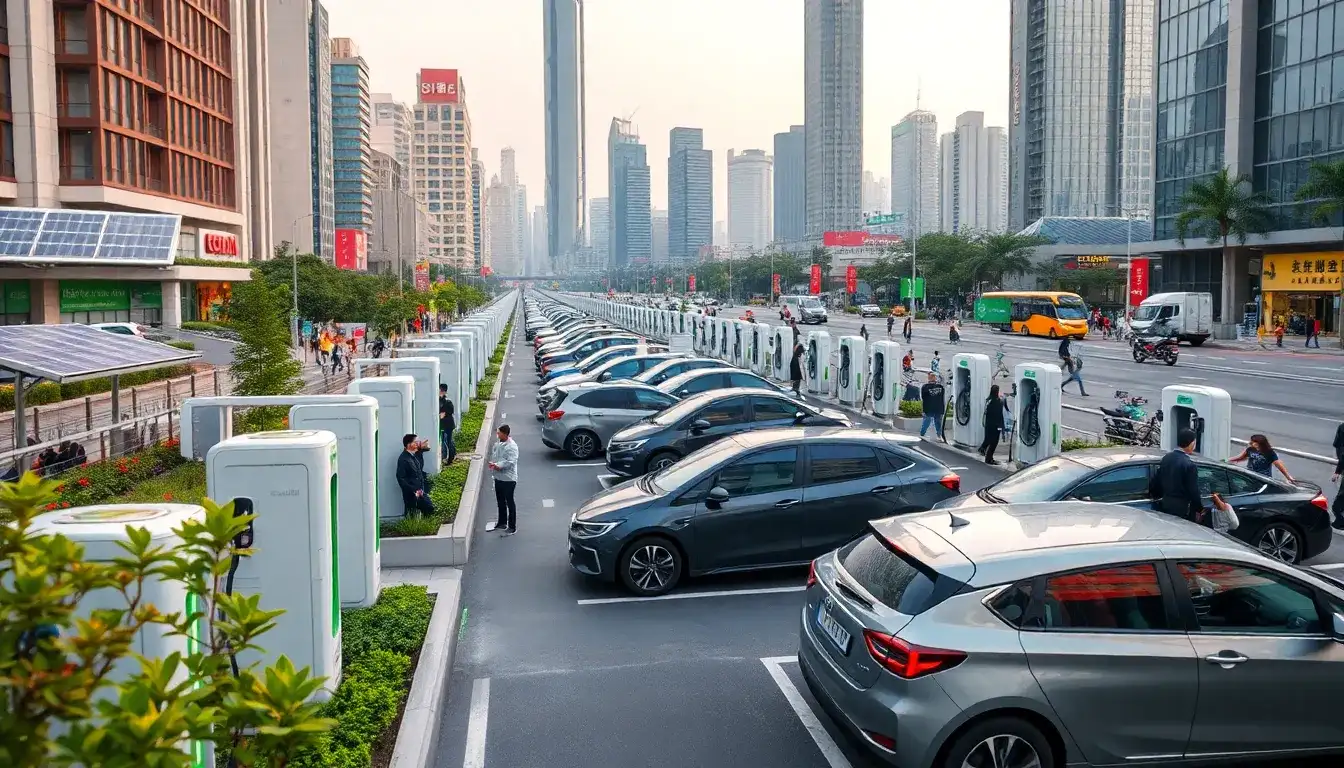
Shenzhen is set to accelerate the construction of its electric vehicle “charging stations” with a plan to establish 2,000 charging points by the end of this year. This initiative was announced on March 24, 2025, during a conference focused on the theme of “Charging Infrastructure for Electric Vehicles.” The event aimed to promote the development of high-quality electric vehicle services.
At the conference, Shenzhen officials outlined plans to enhance the charging network, targeting the establishment of 2,000 charging points for electric vehicles this year. This effort is part of a broader strategy to improve the supply capacity of charging facilities. The “Charging Infrastructure for Electric Vehicles” initiative aims to create an effective charging network through collaboration among various departments, including the Shenzhen Municipal Transportation Bureau, the Shenzhen Municipal Development and Reform Commission, and other governmental bodies.
Additionally, the conference highlighted the importance of integrating advanced technology, such as artificial intelligence, to optimize the management of electric vehicle charging. This includes establishing a centralized platform to monitor and regulate the charging network effectively, ensuring safety and efficiency in operations.
Shenzhen’s push to enhance its electric vehicle infrastructure aligns with national objectives to promote sustainable transportation solutions. The city has been actively working on initiatives to establish itself as a leader in electric vehicle usage and charging infrastructure.
The conference also addressed the city’s commitment to improving the quality of electric vehicle batteries and components, emphasizing the need for high safety standards. Participants included representatives from government agencies, industry leaders, and technical experts who discussed various strategies to advance the electric vehicle sector.
As part of the ongoing efforts, Shenzhen aims to streamline regulations and improve the overall charging experience for users. This includes the establishment of a new charging fee structure that is fair and transparent, ensuring that the electric vehicle ecosystem remains accessible to the public.
Furthermore, Shenzhen plans to develop a comprehensive strategy that encompasses both the construction of charging infrastructure and the promotion of electric vehicle usage. This strategy aims to encourage manufacturers to innovate and improve the quality of electric vehicles and charging systems.
In conclusion, Shenzhen’s ambitious plan to build 2,000 charging points for electric vehicles by the end of the year reflects its commitment to fostering a sustainable transportation environment. The city continues to explore new technologies and collaborative approaches to enhance its electric vehicle infrastructure, setting a benchmark for other cities to follow.







